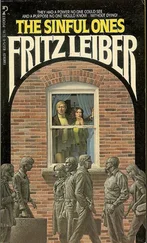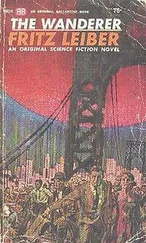Fritz Leiber - The Best of Fritz Leiber
Здесь есть возможность читать онлайн «Fritz Leiber - The Best of Fritz Leiber» весь текст электронной книги совершенно бесплатно (целиком полную версию без сокращений). В некоторых случаях можно слушать аудио, скачать через торрент в формате fb2 и присутствует краткое содержание. Жанр: Фантастика и фэнтези, на английском языке. Описание произведения, (предисловие) а так же отзывы посетителей доступны на портале библиотеки ЛибКат.
- Название:The Best of Fritz Leiber
- Автор:
- Жанр:
- Год:неизвестен
- ISBN:нет данных
- Рейтинг книги:3 / 5. Голосов: 1
-
Избранное:Добавить в избранное
- Отзывы:
-
Ваша оценка:
- 60
- 1
- 2
- 3
- 4
- 5
The Best of Fritz Leiber: краткое содержание, описание и аннотация
Предлагаем к чтению аннотацию, описание, краткое содержание или предисловие (зависит от того, что написал сам автор книги «The Best of Fritz Leiber»). Если вы не нашли необходимую информацию о книге — напишите в комментариях, мы постараемся отыскать её.
The Best of Fritz Leiber — читать онлайн бесплатно полную книгу (весь текст) целиком
Ниже представлен текст книги, разбитый по страницам. Система сохранения места последней прочитанной страницы, позволяет с удобством читать онлайн бесплатно книгу «The Best of Fritz Leiber», без необходимости каждый раз заново искать на чём Вы остановились. Поставьте закладку, и сможете в любой момент перейти на страницу, на которой закончили чтение.
Интервал:
Закладка:
But whatever he thought, I don’t believe he felt it only as a metaphor.
Emily said sharply to me, “You left out one more similarity, the most important That they hate the Enemy with all their hearts and will never trust or understand him.”
I couldn’t find an honest and complete answer to that, though I tried.
The next day I made one more attempt to turn my feelings into poetry, dark poetry, and I failed. I made my refusal of the instructor-ship final, confirmed my reservation on the Dallas-London rocket for day after tomorrow, and delivered the last of the Lanier Lectures.
The Fourth of July was a quiet day. Emily took me on a repeat of our first scooter jaunt, but although I relished the wind on my face and our conversation was passably jolly and tender, the magic was gone. I could hardly see America’s beauty for the shadows my mind projected on it.
Our fireside conversation that night was as brightly banal. Midway we all went outside to watch the fireworks. It was a starry night, very clear of course, and the fireworks seemed vastly remote—transitory extra starfields of pink and green and amber. Their faint cracks and booms sounded infinitely distant, and needless to say, there was not a ribbon or whiff of chemical smoke. I was reminded of my last night in Leningrad with the Rosanovs after the Pushkin Lectures. We’d all strolled down the Kirovskiy Prospekt to the Bolshaya Neva, and across its glimmering waters watched the Vladivostok mail rocket take off from the Field of Mars up its ringed electric catapult taller far than the Eiffel Tower. That had been on a May Day.
Later that night I went for the first time by myself to Emily’s door and pressed its light-button. I was afraid she wouldn’t stop by for me and I needed her. She was in a taut and high-strung mood, unwilling to talk in much more than monosyllables, yet unable to keep still, pacing like a restless feline. She wanted to play in the view window the tape of a real battle in Bolivia with the original sounds too, muted down. I vetoed that and we settled for an authentic forest fire recorded in Alaska.
Sex and catastrophe fit. With the wild red light pulsing and flaring in the bedroom, casting huge wild shadows, and with the fire’s muted roar and hurricane crackle and explosions filling our ears, we made love with a fierce and desperate urgency that seemed almost—I am eternally grateful for the memory— as if it would last forever. Sex and a psychedelic trip also have their meeting point.
Afterward I slept like a sated tiger. Emily waited until dawn to wake me and shoo me back to my bedroom.
Next day all the Grissims saw me off. As we strolled from the silver station wagon to the landing area, Emily and I dropped a little behind. She stopped, hooked her arms around me, and kissed me with a devouring ferocity. The others walked on, too well bred ever to look back. The next moment she was her cool self again, sipping a reefer.
Now the rocketship is arching down. The stars are paling. There is a faint whistling as the air molecules of the stratosphere begin to carom off the titanium skin. We had only one flap, midway of freefall section of the trip, when we briefly accelerated and then decelerated to match, perhaps in order to miss a spy satellite or one of the atomic-headed watchdog rockets eternally circling the globe. The direction comes, “Secure seat harnesses.”
I just don’t know. Maybe I should have gone to America drunk as Dylan Thomas, but purposefully, bellowing my beliefs like the word or the thunderbolts of God. Maybe then I could have fought the shadows. No.
I hope Emily makes it to London. Perhaps there, against a very different background, with shadows of a different sort.
In a few more seconds the great jet will begin to brake, thrusting its hygienic, aseptic exhaust of helium down into the filthy cancerous London smog, and I will be home.
Afterword
All I ever try to write is a good story with a good measure of strangeness in it. The supreme goddess of the universe is Mystery, and being well entertained is the highest joy.
I write my stories against backgrounds of science, history and fantasy worlds of swords and sorcery. I write about the intensely strange everyday human mind and the weird and occult—about which I am a skeptic yet which interest me vastly. I always try to be meticulously accurate in handling these backgrounds, to be sure of my facts no matter what fantastic stories I build from them.
The tales in this volume are predominantly science fantasy. They are arranged in the order in which they were first published, all except “Gonna Roll the Bones.” It seemed best to lead off with a story that displayed to advantage all my talents, such as they are. It was actually written next to the last of the twenty-two stories in this book.
I’m sure you’ll agree that authors’ remarks are egotistical effusions at best, so I’ll devote this space to telling a bit of the history of the stories—and to effusing egotistically.
“Gonna Roll the Bones” was written to a dull anticlimax and set aside for six months. After this fortuitous opportunity for subconscious growth, it was rewritten under pressure to meet the deadline of Harlan Ellison’s monumental anthology Dangerous Visions. The story luckily won the Hugo and Nebula novelette awards for 1967. Theodore Sturgeon said of it in a review, “Fritz Leiber is at his cadenced, ringing best in a completely successful blend of science fiction and myth, adventure and horror.”
“Sanity” and “Wanted—An Enemy” were done for Astounding Stories (now Analog) and its master editor John W. Campbell, Jr., who taught me more about plotting and motivation than any other individual. These two stories reflect my wry worries about war, pacifism, and world government.
“The Man Who Never Grew Young” seemed to write itself (Ray Bradbury told me he wished he’d written it. Do all his stories write themselves? I doubt it) for my first hardcover book, published by Arkham House and the ever-helpful August Derleth.
“The Ship Sails at Midnight” is the romantic tale of a love that was unconventional, at least then. The goddess Mystery makes an appearance, perhaps. I picked it as my best single story for a Derleth anthology.
“The Enchanted Forest” was another story for Campbell—and for another Derleth anthology—done after a dry period of some five years.
“Coming Attraction,” which Judith Merril calls “satire at its most terrifyingly prophetic,” was denounced by a minority of its first readers as Unamerican (I don’t know why—it’s Unrussian too) and praised by quite a few fellow writers. Isaac Asimov said, “Can times become even more neurotic than they are now? Well, read ‘Coming Attraction’ by Fritz Leiber on our neurotic future.” It and the novelette “Poor Superman” mirror the intense concern of 1950 with Mc-Carthyism, computerization and, above all, the bomb. Damon Knight said about the novelette, “Fritz Leiber is at his brilliant best when sticking pins into some prominent member of the American Paranoids’ Association—e.g., Mickey Spillane in ”The Night He Cried,“ or, in the present case, our old friend Alfred van Vogt.” (Wrong on the second count, Damon. In “Poor Superman” I had in mind L. Ron Hubbard and Campbell himself, the latter a very helpful but very well-intentioned innocent bystander at the monstrous birth of dianetics, mother of Scientology.) “A Pail of Air” pictures a struggle against another sort of world doom. All three stories were published hi Horace Gold’s then new (1950), stimulatingly modern magazine, Galaxy.
“The Big Holiday” was my second sale (1953) to the other new, stimulatingly modern—and highly literate—magazine, Fantasy and Science Fiction. Its editor, the brilliant Anthony Boucher, helped me more than any other person—but perhaps for H. P. Lovecraft and Harry Fischer—to give my stories style and literary polish. Boucher called my story “the finest conception we have yet of the fun of the future—a Breughel-like canvas of merriment.”
Читать дальшеИнтервал:
Закладка:
Похожие книги на «The Best of Fritz Leiber»
Представляем Вашему вниманию похожие книги на «The Best of Fritz Leiber» списком для выбора. Мы отобрали схожую по названию и смыслу литературу в надежде предоставить читателям больше вариантов отыскать новые, интересные, ещё непрочитанные произведения.
Обсуждение, отзывы о книге «The Best of Fritz Leiber» и просто собственные мнения читателей. Оставьте ваши комментарии, напишите, что Вы думаете о произведении, его смысле или главных героях. Укажите что конкретно понравилось, а что нет, и почему Вы так считаете.









